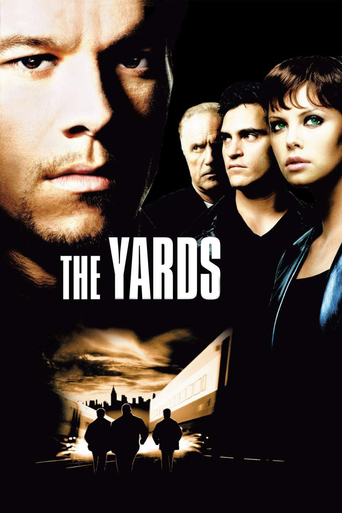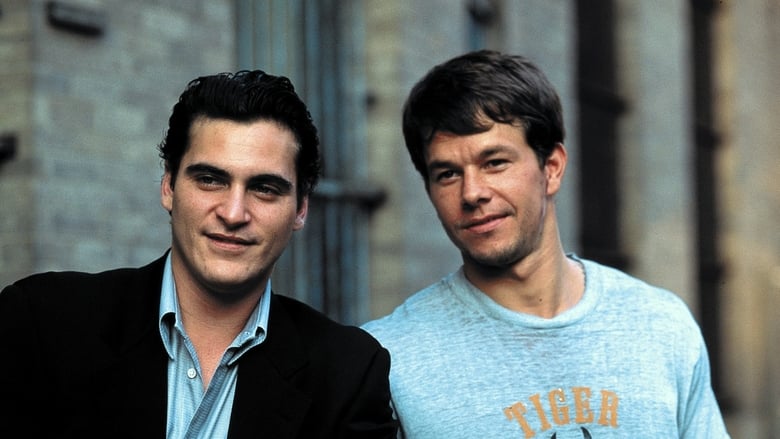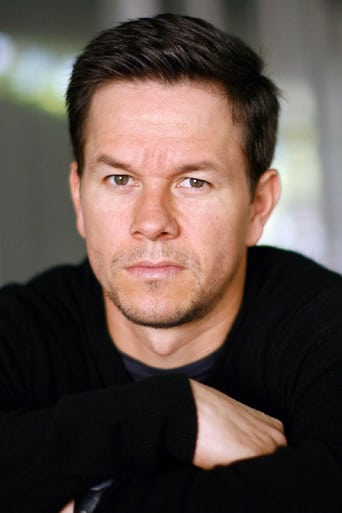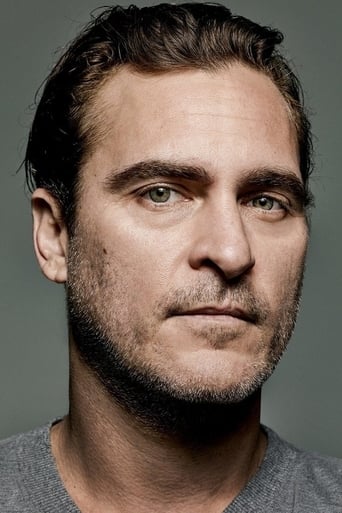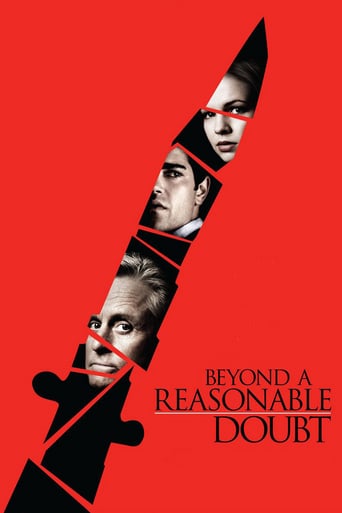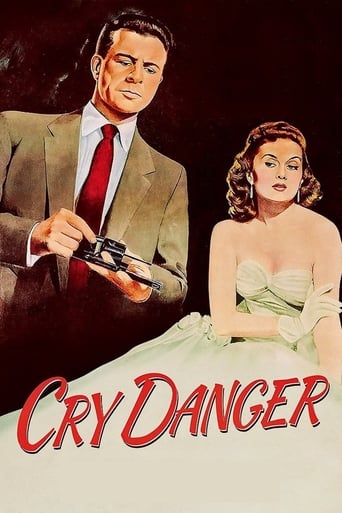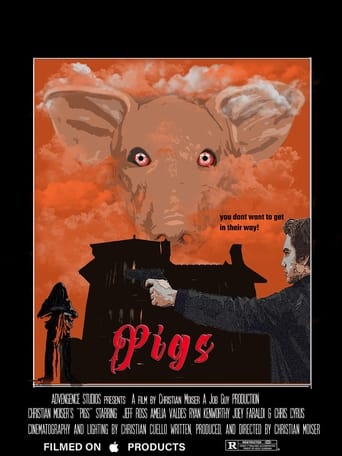The Yards (2000)
In the rail yards of Queens, contractors repair and rebuild the city's subway cars. These contracts are lucrative, so graft and corruption are rife. When Leo Handler gets out of prison, he finds his aunt married to Frank Olchin, one of the big contractors; he's battling with a minority-owned firm for contracts.
Watch Trailer
Cast
Similar titles
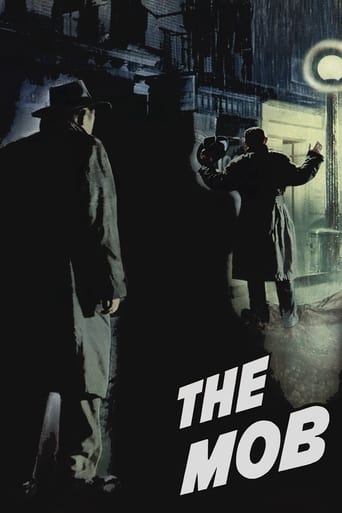
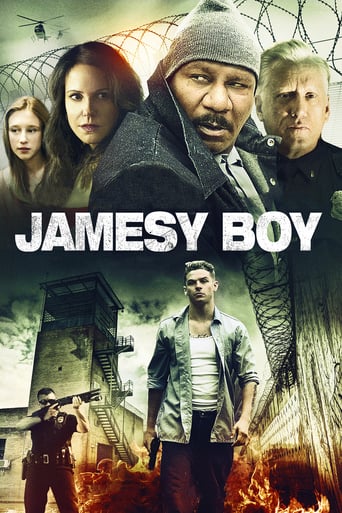
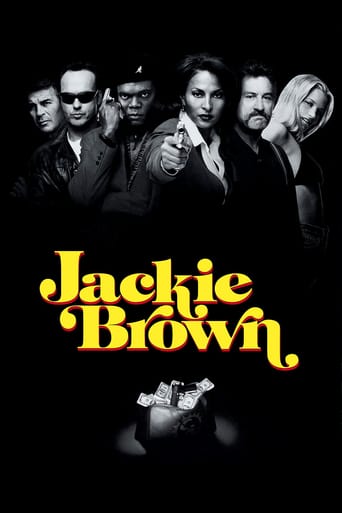
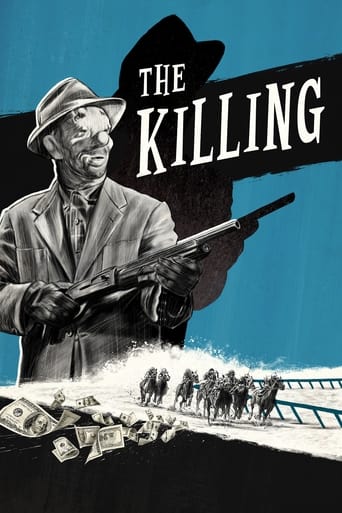
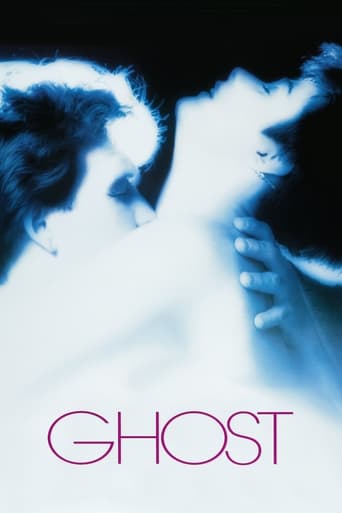
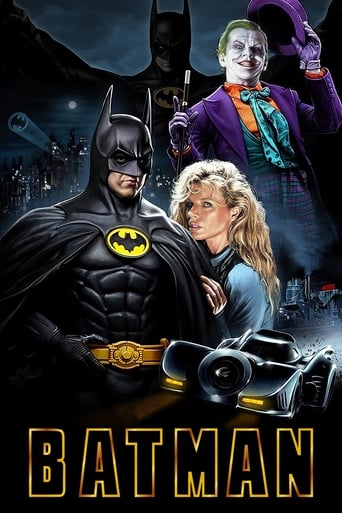
Reviews
Good story, Not enough for a whole film
It is an exhilarating, distressing, funny and profound film, with one of the more memorable film scores in years,
The movie turns out to be a little better than the average. Starting from a romantic formula often seen in the cinema, it ends in the most predictable (and somewhat bland) way.
An old-fashioned movie made with new-fashioned finesse.
Spoiler:This movie has some great acting, but an ending that ruins it for me. At the end, all the train yard principals cut a deal that only leaves one character hanging. But then another leading character violates the agreement, which makes no sense as it will devastate everyone he loves, plus gets him whacked before they can even go to trial, if the movie went on. The movie should have ended where three family members are holding hands at a funeral with a bitter-sweet ending. Instead the movie asks us to accept that a powerless, jobless ex-con is going to bring down the power brokers of New York city based on his word, and no proof at a council meeting. Rubbish.
Three years in prison and out on parole, attractive and muscular Mark Wahlberg (as Leo Handler) rides the New York City subway to his home in Queens. His mother and friends have a surprise "Welcome Home, Leo" party for Mr. Walberg, with his best pal Joaquin Phoenix (as Willie Gutierrez) and girlfriend Charlize Theron (as Erica Soltz) in attendance. Walberg's goal is to get a good job and stay out of trouble. Fat chance You know when Walberg glances at a cop on the subway where this story is going. In this type of movie, the hapless hero is reluctantly drawn back into a life of crime. This usually begins when the star agrees to assist a friend's criminal activity – in a relative safe position, such as a "lookout" or driver. Then, something goes terribly wrong. A mother's heart is broken. The young men fight over the girl. Police are involved – and, if an officer gets hurt, there could be hell to pay..."The Yards" may not have been the best title for this crime drama. It refers to New York City's railroad yards, where subway trains are maintained.Written (with Matt Reeves) and directed by James Gray, the story follows very familiar tracks. Having characters play out a fairly predictable plot is not necessarily bad – but you do expect some significant deviations. The most striking may be that Ms. Theron's make-up and manners seem way too hip for her character and the setting. With blue-black shellac in his hair, Mr. Phoenix appears like the 1950s "Elvis". Wahlberg delivers moody doom well for Mr. Gray. There is good support from shady businessman James Caan (as Frank Olchin). He and Gray are obviously going from "On the Waterfront" to "The Godfather" in the scene where Mr. Caan discusses "business" with his associates. Ellen Burstyn is fine in a small part, but Faye Dunaway has nothing much to do in an even smaller role. Vegas-style singer Steve Lawrence (as Arthur Mydanick) is very effective. Harris Savides' photography is stylish."The Yards" is circulated with different edits. Thematically bracketing the opening, the "theatrical version" version is superior to the "director's cut".****** The Yards (4/27/00) James Gray ~ Mark Wahlberg, Joaquin Phoenix, Charlize Theron, James Caan
Over the course of his career Mark Wahlberg has emerged as the working man's image on the big screen. He certainly comes by that naturally with his background being born and raised in the Dorchester section of Boston. His best performances on screen in my opinion have been of ordinary people and their situations. In The Yards he gives one of his best performances and his Boston accent barely shows.The Yards refers to the place where the New York City subway cars are housed and maintained. There are several in the city and the action here takes place in the Sunnyside section of Queens. Mark Wahlberg is a young man who recently was released from jail having taken a rap for all of his friends involved in a crime.He wants badly to turn over a new leaf and his uncle James Caan who has a business maintaining the subway cars offers him work. He can also go the trade school route. But Wahlberg's mother Ellen Burstyn is in a bad way and he's needing money now. Another tragedy of our inadequate health system. Rather than repair subway cars, Wahlberg goes to work with his old running buddy Joaquin Phoenix who works for Caan on the side wrecking the work of other contractors, minority contractors who get a set quotient of work.But one night Wahlberg is caught by a cop whom he turns the tables on, takes his nightstick and clubs him leaving him in a coma. At the same time Phoenix has a quarrel with yardmaster at night and knifes him to death. No one suspects him, but there's a bullseye on Wahlberg's back with every cop in the city hunting him.The manure piles up big time in this one, even threatening the Queens Borough President Steve Lawrence. How it all works out is a typical New York City story.Big Kudos for Mark Wahlberg in this one and some recognition for Joaquin Phoenix playing another one who gets in way over his head. The Yards should be seen back to back with the Al Pacino film City Hall for a real look at New York's political underbelly.
This is a review of "Little Odessa", "The Yards" and "We Own the Night", three crime dramas by director James Gray.Released in 1994, "Little Odessa" stars Tim Roth as Joshua Shapira, a volatile criminal who has been exiled by his family. A "prodigal son returns" narrative, the film watches as Roth returns to his family home. Though his relatives still distrust him, Joshua is idolised by his younger brother, little Reuben Shapira (Edward Furlong). The film ends, as most "prodigal son" tales do, with Reuben dying, paying for his brother's sins."Little Odessa" was Gray's debut. It's a very good drama, well acted by the always electric Tim Roth, but the film's ethnic details are unconvincing and Gray falters in his final act with an obvious, overblown sequence in which little Reuben is accidentally gunned down.Gray followed "Odessa" up with "The Yards" (2000), a crime drama set in the commuter rail yards of New York City. The film's structure is similar to "Odessa", and sees Mark Wahlberg playing an ex-convict who returns home after a short stint in prison. Wahlberg attempts to stay clean, to keep his nose out of crime, but is drawn back into the criminal underworld by a friend played by Joaquin Phoenix. The film retains the "brotherhood dynamics" of "Odessa", Wahlberg playing the "good son" who eventually turns on his suffocating sibling. Once again the film ends with a ridiculously over-the-top death sequence.While "The Yards" has a certain, smothering pretentiousness about it, convinced about its own importance (it's lit like Rembrandt, street fights are filmed like Visconti's "Rocco and His Brothers" and it's reaching for the tone of Coppola's "The Godfather"), Gray nevertheless cooks up some wonderful strokes, like a beautifully sensitive welcome-home party, a wordless assassination attempt and a fine, aching performance by Wahlberg. It's a great mixed bag.Gray then directed "We Own The Night", arguably his best crime flick. The "good brother/bad brother" motif returns, this time with Mark Wahlberg and Joaquin Phoenix playing a pair of brothers on either side of the law. Phoenix's a perpetually high playboy who owns a nightclub frequented by drug-runners and mafia types, and Wahlberg's a straight-arrow cop trying to keep the streets clean. When the mafia unleashes an assassination campaign on local cops, Phoenix switches allegiances, goes undercover and attempts to take down the mob. There are touches of "Donnie Brasco", "Rush", "Point Break", "Serpico", "State of Grace", "Infernal Affairs" and every other "undercover cop" movie you can think of, but the film is beautifully lit, is atypically straight-faced and features a superb, rain-soaked car chase.Some have suggested that Gray's trilogy should be celebrated for working in a "classical", almost conventionally Greek mould. That his conventionality suggests that all his characters are at the mercy of already in place contours, their fates forgone. Mostly, though, Gray's trilogy highlights the ways in which contemporary artists have struggled to conceive of a response to postmodernism. The crime movies of, say, Tarantino and Scorsese, are unashamedly postmodern, toying with and regurgitating clichés from 1930s Warner machine gun operas and MGM crime flicks. They aren't about "crime", so much as they're pastiche jobs, jazzed up films about crime films. As a response to this aesthetic, artists who deem themselves "serious", who rightfully ask "what exactly comes next?", tend to look backwards at what came before, as though post-war modernism, by virtue of being modernism, is intrinsically "the solution". This leads to classically shot and written but wholly regressive fare like Gray's trilogy, which essentially unscrambles the world's Scorseses and Tarantinos and puts you right back in the 1940s, minus the irony and flippancy.But you can't go backwards in this way; your audience will always be ten steps ahead and there will always be a huge chasm between your solemnity and the tired insights your film delivers. This is why true progressive works in the genre, for example fare like "The Wire", which actively attempts a cognitive mapping of both global capitalism and crime, are neither modernist or postmodern, whilst possessing the vital traits of both. Philosophers have alternatively coined this new movement "neoprimitivism", "pseudomodernism", "participatism", "post-post modernism", but the one that seems to be sticking is "new modernism".Whatever you call it, this hypothetical movement rejects postmodern nihilism (nothing matters, there is no "truth", it's just a film), actively tries to convey the complexities of our world, and covertly believes that it is possible and necessary for individuals to make value judgements, take stands, approach objectivity, and back facts up. It is modernist in its desires to "understand", "teach", "decipher" and "make better" the world, and in its emphasis on culture, society, technology and politics. The movement doesn't reject postmodernism, but co-opts its tropes and bends them to suit its aim, questioning agency, subjectivity and attempting to piece together the fragments and multiple perspectives that typify complex systems. In short, truly relevant crime films simultaneously simulate our contemporary environment of junk, noise, commerce and static, before proceeding to decode, organise and target roots. As William Gibson said way back in the 1980s, future great artist will function like search engines, mapping and making sense of the detritus. Gray goes backwards to when there was less noise.7.9/10 - Worth one viewing.
